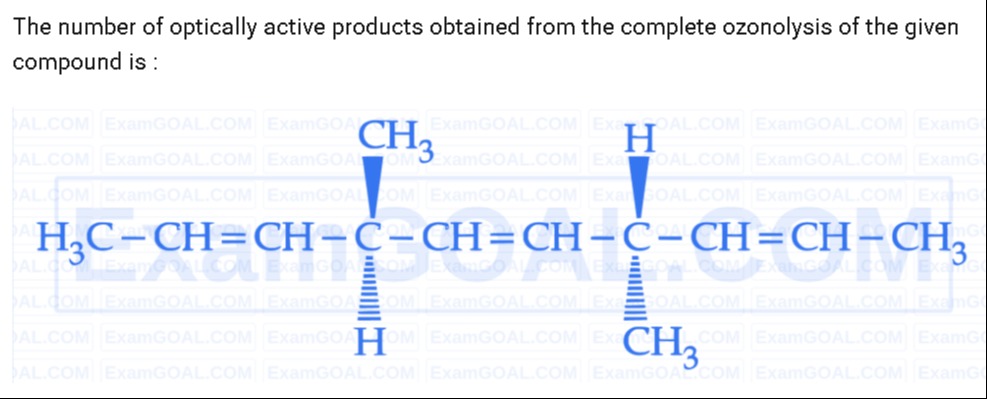Question
Question: The number of optically active products obtained from the complete ozonolysis of the given compound ...
The number of optically active products obtained from the complete ozonolysis of the given compound is:

A
0
B
1
C
2
D
3
Answer
2
Explanation
Solution
Step 1: Identify the double bonds and cleavage fragments
The molecule has three C=C bonds; complete ozonolysis cleaves each to give carbonyl fragments.
- Terminal alkene cleavage gives acetaldehyde (achiral).
- Internal alkenes linked to the chiral centers produce asymmetrically substituted diketone fragments that retain a stereogenic carbon.
Step 2: List all ozonolysis products
- CH₃CHO (acetaldehyde) – achiral
- HOCH₂CHO (glycolaldehyde) – achiral
- CH₃COCOCH₃ (diacetyl) – achiral
- CH₃COCHO (methyl glyoxal) – achiral
- CH₃COCH₂CHO (3‐oxobutanal) – contains a stereogenic center at CH₂CHO end → optically active
- HOCH₂COCH₃ (hydroxyacetone) – contains a stereogenic center at HOCH₂CO → optically active
Step 3: Count optically active products
Only fragments (5) and (6) are chiral → 2 optically active products.
